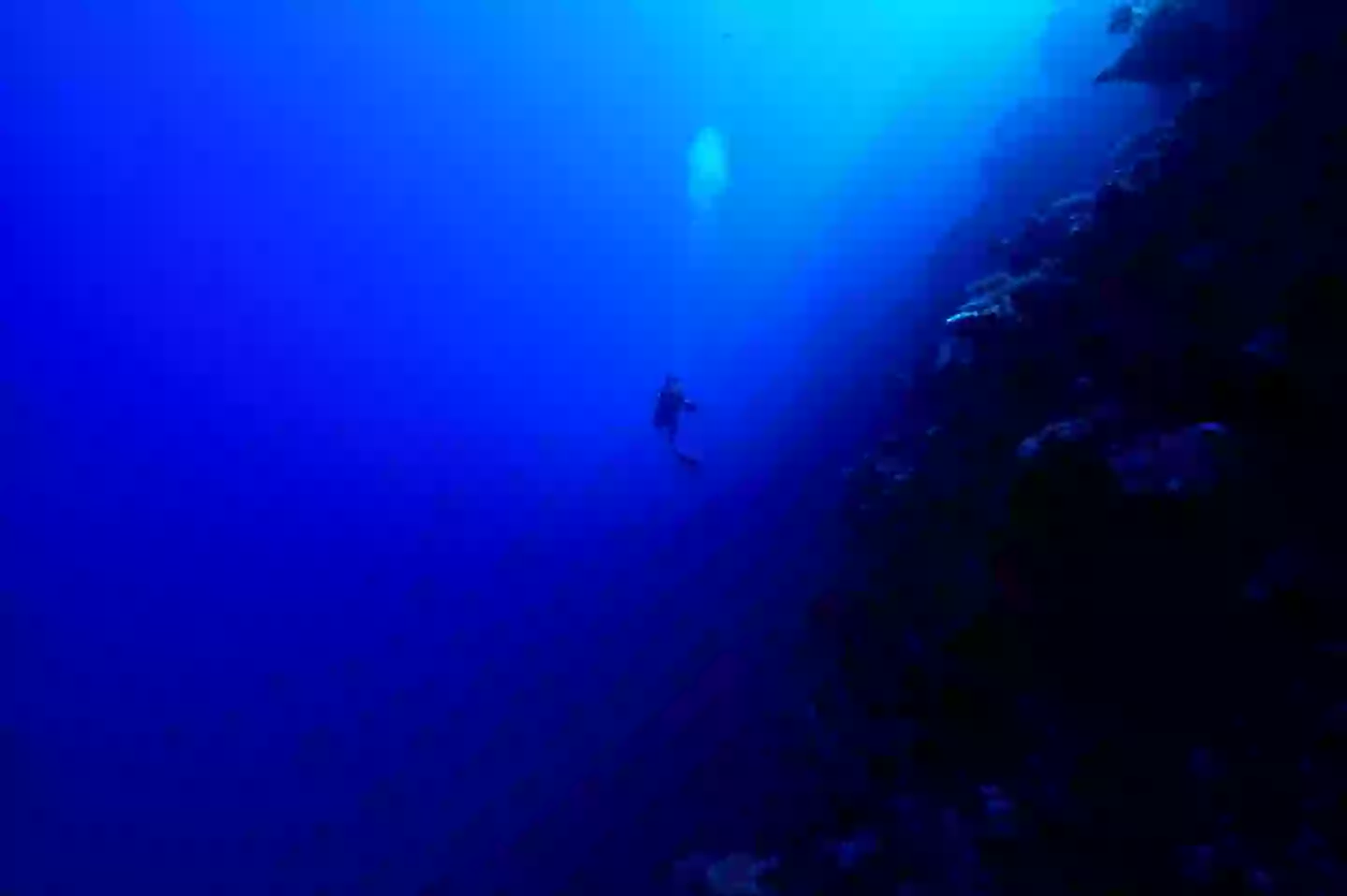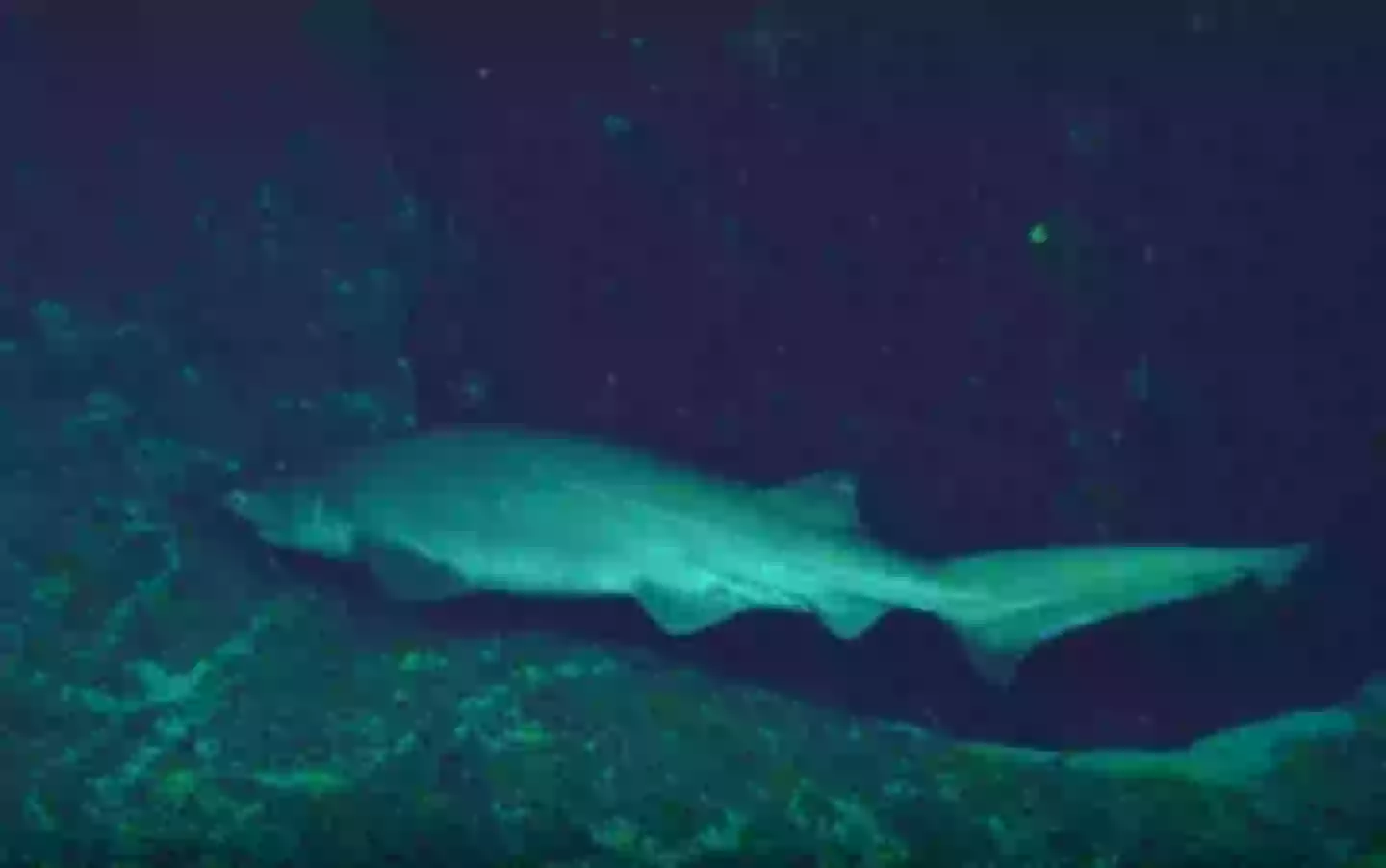
It's no secret that the deepest corners of the ocean are home to some of the more peculiar looking creatures which inhabit our planet.
Take the infamous 'demon fish' or the notoriously ugly blobfish for example, it's a whole different world down there and it's one which I bet will make you very happy to have your feet planted on dry ground.
However, the seven seas are also home to an abundance of fascinating creatures, including animals which have ancestors that are older than the dinosaurs.
Advert

The animal we're talking about is of course the bluntnose sixgill shark, which the Natural History Museum refers to as the 'oldest-known group of modern sharks'.
Also known as the cow shark, the sixgill is considered rare amongst oceanologists. Which meant that when deep sea scientists at the Schmidt Ocean Institute happened across one, while conducting research near the Pacific Ocean's Phoenix Islands, they were pretty happy.
"We asked everybody yesterday what they most wanted to see and there was almost a chorus of the word ‘shark’ all at the same time," one of the group's researchers said of the discovery (via BBC Wildlife). "Here you go guys."
So, why is spotting one of these sharks in the wild such a big deal to researchers?
Advert

One of these reasons is the fact that the animal has six instead of the standard five gills found on sharks such as Great Whites or Hammerheads. National Geographic refers to the extra gill as a 'relic from the ancient conditions they evolved in.'
Another reason being the fact that sixgills prefer to live in deeper parts of the world's oceans, turning up in the Pacific, Atlantic and Indian Oceans - which is surely music to the ears of surfers and swimmers.
Although younger sharks will venture closer to shorelines, adults tend to stay at depths of at least 100 m (330 ft). Which isn't particularly deep in the grand scheme of things, but means you're less likely to come across one while on holiday.
Should this be the case then don't panic too much, as Florida Museum states they are not a threat to humans unless provoked.
Advert
If you fancy getting up close and personal (or as close as you can through a screen), then marine research initiative OceanX were previously able to tag one of the creatures back in 2020 and shared the footage online.
Explaining why it was so important to locate one in the video, the group said: "This ancient species predates most dinosaurs, and is a dominant predator of the deep sea ecosystem."
Topics: Animals, Environment, Sharks, Science, News